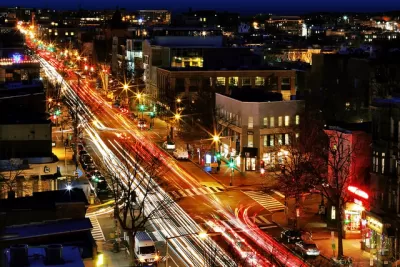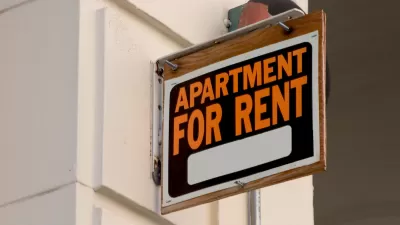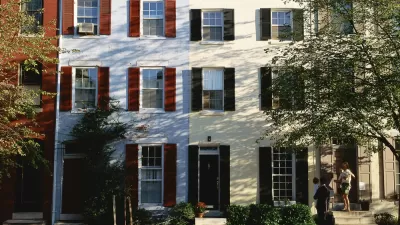A new report accuses the District of misusing funds and failing to properly monitor projects aimed at creating housing for 'extremely low-income' households.

A report from the Washington, D.C. Office of the Inspector General (IG) claims that District officials "misspent" close to $82 million in affordable housing funds in 2020. As reported by Marissa J. Lang, the IG report "describes what it says is the District’s failure to properly monitor the vast majority of projects funded through the Housing Production Trust Fund — the city’s primary tool for financing affordable housing amid a persistent and dire shortage — and to recoup more than $10 million in past-due loans." The report also "raises questions about the District’s process in awarding contracts for affordable-housing development, deals the OIG found often went to lower-scoring applicants." The report comes as "evictions in D.C. are poised to gradually resume after an 18-month-long stoppage imposed because of the ongoing coronavirus pandemic," writes Lang.
A spokesman for the Department of Housing and Community Development argues that the report ignores the "tremendous success" of the District's affordable housing program, which the agency claims will spend $63.2 million on "deeply affordable units" in fiscal year 2022.
According to the report, "although at least 50 percent of Housing Production Trust Fund spending is legally required to provide housing to households with incomes below 30 percent of the median annual family income — which in D.C. is to about $38,700 for a family of four — far less of the affordable housing created using city funds was affordable for the city’s poorest residents," funding instead housing for households below 50 percent or 80 percent of median annual family income. "The OIG found that D.C. officials could not guarantee that 88 percent of 209 development deals backed by D.C. loans specifically created to underwrite affordable-housing projects — to the tune of nearly $795 million in public funds — actually built or preserved affordable housing units."
The IG also issued 20 recommendations that could improve the Department's management of its affordable housing fund. The agency, for its part, "has begun to implement about half of the proposals" but "refused to implement eight of the recommendations, including establishing a conflict of interest disclosure procedure for all DHCD employees engaged in selecting development projects" and "a process to obtain a written waiver from the D.C. Council before backing projects that fall below the affordable housing funding obligations required by D.C. law, saying it is unfeasible to do so."
The office of the mayor says a new Local Rent Supplement Program will "better target funds to deeply affordable units" with the goal of delivering an estimated 2,700 affordable units over the next three years.
FULL STORY: D.C. misused nearly $82 million meant to provide housing to the city’s poorest residents, IG says

Planetizen Federal Action Tracker
A weekly monitor of how Trump’s orders and actions are impacting planners and planning in America.

Maui's Vacation Rental Debate Turns Ugly
Verbal attacks, misinformation campaigns and fistfights plague a high-stakes debate to convert thousands of vacation rentals into long-term housing.

Restaurant Patios Were a Pandemic Win — Why Were They so Hard to Keep?
Social distancing requirements and changes in travel patterns prompted cities to pilot new uses for street and sidewalk space. Then it got complicated.

In California Battle of Housing vs. Environment, Housing Just Won
A new state law significantly limits the power of CEQA, an environmental review law that served as a powerful tool for blocking new development.

Boulder Eliminates Parking Minimums Citywide
Officials estimate the cost of building a single underground parking space at up to $100,000.

Orange County, Florida Adopts Largest US “Sprawl Repair” Code
The ‘Orange Code’ seeks to rectify decades of sprawl-inducing, car-oriented development.
Urban Design for Planners 1: Software Tools
This six-course series explores essential urban design concepts using open source software and equips planners with the tools they need to participate fully in the urban design process.
Planning for Universal Design
Learn the tools for implementing Universal Design in planning regulations.
Heyer Gruel & Associates PA
JM Goldson LLC
Custer County Colorado
City of Camden Redevelopment Agency
City of Astoria
Transportation Research & Education Center (TREC) at Portland State University
Jefferson Parish Government
Camden Redevelopment Agency
City of Claremont





























